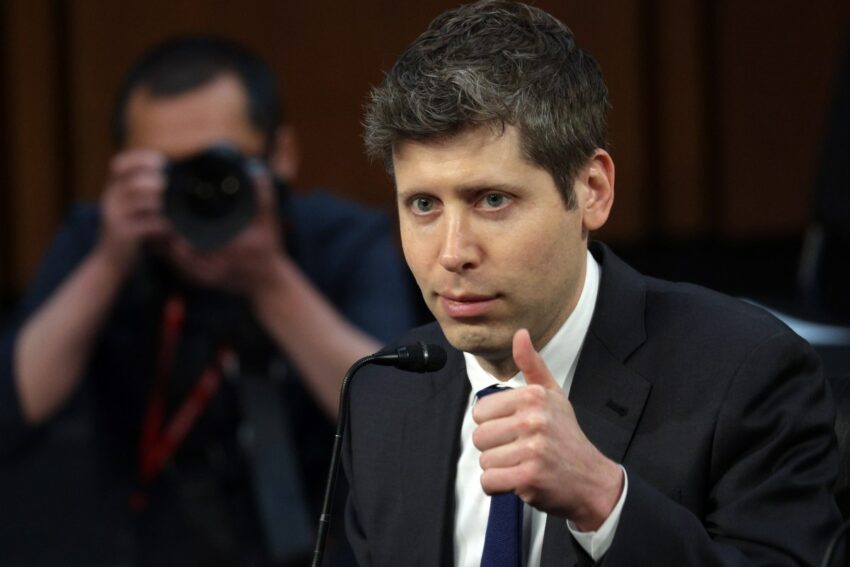
should ai do everything openai thinks so OpenAI’s recent stance on artificial intelligence development raises critical questions about the balance between innovation and responsibility in the tech industry.
should ai do everything openai thinks so
The Current Landscape of AI Development
In recent years, artificial intelligence has rapidly evolved from a niche technology into a transformative force across various sectors, including healthcare, finance, and education. Silicon Valley has long been characterized by a culture that prioritizes rapid innovation over caution, often leading to groundbreaking advancements but also significant ethical dilemmas. This ethos is particularly evident in the ongoing discourse surrounding AI safety and regulation.
OpenAI, a leading player in the AI space, has recently taken steps to remove certain guardrails that were previously in place to ensure responsible AI development. This decision has sparked a heated debate among industry experts, policymakers, and the public about the implications of such a move. The question arises: should AI be allowed to operate without stringent oversight, or is there a need for a more balanced approach that considers ethical implications?
The Role of Venture Capitalists
Venture capitalists (VCs) play a significant role in shaping the direction of technology companies, including those focused on AI. Recently, some VCs have criticized companies like Anthropic for advocating for AI safety regulations. This backlash highlights a growing divide within the industry regarding the future of AI development.
On one side, proponents of unrestricted AI development argue that innovation should not be stifled by regulatory frameworks. They assert that excessive caution could hinder technological progress and the potential benefits that AI can bring to society. On the other hand, advocates for safety regulations emphasize the need for responsible development practices to mitigate risks associated with AI technologies, such as bias, misinformation, and privacy concerns.
The Implications of Removing Guardrails
OpenAI’s decision to remove certain safety measures raises several important questions. What are the potential risks of allowing AI systems to operate without robust oversight? Could this lead to unintended consequences that outweigh the benefits of rapid innovation?
One of the primary concerns is the possibility of AI systems perpetuating existing biases or creating new forms of discrimination. Without proper safeguards, AI algorithms may inadvertently reinforce societal inequalities, leading to harmful outcomes for marginalized communities. This risk is particularly pronounced in areas such as hiring, law enforcement, and lending, where AI systems are increasingly being deployed.
Moreover, the lack of oversight could result in the proliferation of misinformation. As AI technologies become more sophisticated, they can generate realistic but misleading content, making it challenging for individuals to discern fact from fiction. This issue is especially relevant in the context of social media, where AI-generated content can spread rapidly, influencing public opinion and potentially undermining democratic processes.
Stakeholder Reactions
The reactions to OpenAI’s decision have been mixed, reflecting the broader debate within the tech community. Some industry leaders and experts have expressed concern about the implications of removing safety measures. They argue that responsible AI development should prioritize ethical considerations alongside innovation.
For instance, prominent figures in the AI ethics community have called for a more collaborative approach to AI regulation. They advocate for the involvement of diverse stakeholders, including ethicists, policymakers, and representatives from affected communities, in shaping the future of AI technologies. This collaborative effort could help ensure that AI systems are developed in a manner that aligns with societal values and ethical principles.
The Need for a Balanced Approach
As the debate continues, it is becoming increasingly clear that a balanced approach to AI development is essential. While innovation is crucial for driving progress, it should not come at the expense of ethical considerations. Striking the right balance will require ongoing dialogue among stakeholders, as well as a willingness to adapt to the evolving landscape of AI technologies.
One potential solution is the establishment of industry-wide standards for AI development that prioritize safety and ethical considerations. Such standards could provide a framework for companies to follow, ensuring that they are held accountable for the impact of their technologies. Additionally, regulatory bodies could play a role in overseeing AI development, helping to mitigate risks while still allowing for innovation.
The Future of AI Regulation
The future of AI regulation remains uncertain, particularly as companies like OpenAI push for fewer restrictions. However, the ongoing discussions surrounding AI safety and ethics suggest that there is a growing recognition of the need for responsible development practices. As the technology continues to evolve, so too must the frameworks that govern its use.
Policymakers are increasingly aware of the potential risks associated with AI, and some have begun to explore regulatory measures aimed at ensuring responsible development. For example, the European Union has proposed regulations that would establish guidelines for AI systems, focusing on transparency, accountability, and human oversight. These efforts reflect a broader trend toward recognizing the importance of ethical considerations in technology development.
Global Perspectives on AI Development
The conversation around AI regulation is not limited to the United States. Countries around the world are grappling with similar questions about how to balance innovation and responsibility. In China, for instance, the government has implemented strict regulations governing AI technologies, emphasizing the need for state control over the development and deployment of AI systems. This approach contrasts sharply with the more laissez-faire attitude prevalent in Silicon Valley.
In contrast, countries like Canada and the United Kingdom are exploring collaborative approaches to AI governance, seeking input from various stakeholders to develop comprehensive frameworks that prioritize ethical considerations. These differing approaches highlight the complexities of AI regulation and the need for international cooperation in addressing the challenges posed by this rapidly evolving technology.
Conclusion: The Path Forward
As OpenAI and other tech companies navigate the evolving landscape of AI development, it is crucial to consider the broader implications of their decisions. The removal of guardrails may facilitate rapid innovation, but it also raises significant ethical concerns that cannot be ignored. A balanced approach that prioritizes both innovation and responsibility is essential for ensuring that AI technologies are developed in a manner that aligns with societal values.
The ongoing dialogue among stakeholders, including industry leaders, policymakers, and ethicists, will play a pivotal role in shaping the future of AI regulation. By working collaboratively to establish standards and guidelines for responsible AI development, the tech industry can help mitigate risks while still fostering innovation. Ultimately, the goal should be to harness the potential of AI to benefit society while minimizing the risks associated with its deployment.
Source: Original report
Was this helpful?
Last Modified: October 18, 2025 at 1:39 am
2 views















